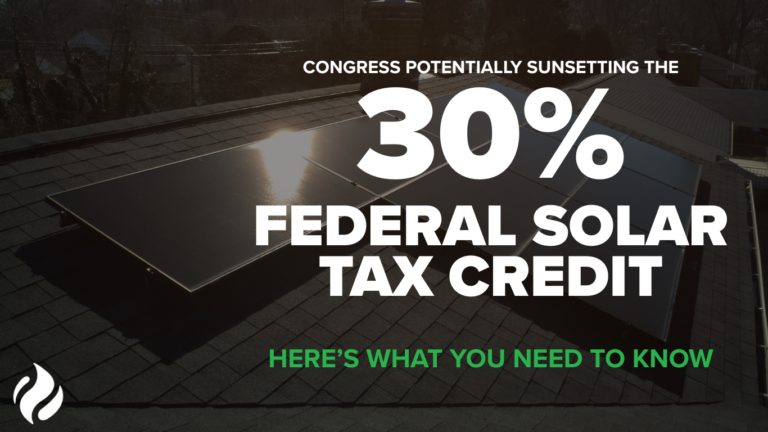Delaware Solar Incentives: There are various incentives available in the state of Delaware to encourage the use of solar energy
At Lumina Solar, we specialize in helping homeowners and businesses in the state of Delaware take advantage of the various solar rebates and incentives available to them. Our team of experts is well-versed in navigating the intricacies of the state’s solar incentive programs, and we can assist you in maximizing your savings while transitioning to clean, renewable energy sources. Whether you’re looking to install a new solar panel system or upgrade your existing setup, we can guide you through the process and ensure that you receive all the benefits you’re entitled to.
Understanding Solar Rebates in the First State
When it comes to understanding solar rebates in Delaware, there are a few key points to keep in mind:
- State-specific incentives: Delaware offers a range of rebates and incentives to promote solar energy adoption, including tax credits, performance-based incentives, and grants.
- Net metering: Under Delaware’s net metering policy, you can earn credits for any excess electricity your solar panels generate and send back to the grid.
- Solar renewable energy credits (SRECs): By installing a solar panel system, you can earn SRECs, which can be sold on the market for additional income.
By leveraging these incentives and programs, you can not only reduce your carbon footprint but also save money on your energy bills in the long run. Our team at Lumina Solar is here to help you every step of the way, from initial consultation to system installation and beyond. Contact us today to learn more about how you can benefit from solar rebates in the First State!
Lumina Solar Delaware 200 Continental Dr Suite 401, Newark, DE 19713 M8PR+RJ Newark, Delaware
For more information – Click Here
Exploring Solar Tax Credits in the First State
When considering renewable energy options in Delaware, it’s important to explore the various tax credits available to help offset costs and encourage the use of solar power. The First State offers a range of incentives that can make solar energy more affordable for homeowners and businesses alike. By taking advantage of these programs, you can not only reduce your carbon footprint but also save money in the long run.
- Federal Investment Tax Credit (ITC): This incentive allows you to deduct a percentage of the cost of installing a solar energy system from your federal taxes. The ITC can significantly reduce the upfront cost of going solar.
- Solar Renewable Energy Credits (SRECs): Delaware participates in the SREC market, which allows you to earn credits for the electricity your solar panels generate. These credits can then be sold to utility companies to help meet their renewable energy requirements.
- Net Metering: Under Delaware’s net metering policy, you can receive credit for excess electricity your solar panels produce and send back to the grid. This can help offset the cost of electricity you use when your panels aren’t generating power.
It’s important to research and understand the various tax credits and incentives available in Delaware to make an informed decision about installing a solar energy system. By taking advantage of these programs, you can make a positive impact on the environment while also enjoying financial benefits.
Maximizing Solar Incentive Programs in The First State
When it comes to taking advantage of solar incentives in Delaware, there are several strategies that homeowners can employ to maximize their benefits. By utilizing a combination of state and federal incentives, along with smart energy practices, residents can make the most of their solar investment. Here are some expert tips to help you get the most out of your solar incentive programs:
- Consider installing a larger solar array to take full advantage of net metering programs, which allow you to sell excess energy back to the grid.
- Explore the option of solar renewable energy credits (SRECs) which can provide additional income for homeowners who generate solar power.
- Invest in energy-efficient appliances and lighting to reduce your overall energy consumption, making your solar investment go further.
In addition to these strategies, it’s important to stay informed about changes in solar policies and incentives at both the state and federal levels. By keeping up-to-date on the latest developments, homeowners can ensure they are maximizing their solar savings.
Pros and Cons of Maximizing Solar Incentive Programs:
| Pros | Cons |
|---|---|
| Increased savings on energy bills | Upfront costs of solar installation |
| Reduced carbon footprint | Dependence on sunlight for energy production |
| Potential for additional income through SRECs | Fluctuations in energy prices and incentives |
By carefully considering these factors and implementing the right strategies, homeowners in Delaware can make the most of their solar incentive programs and enjoy the benefits of clean, renewable energy for years to come.
The Benefits of Net Metering for Delaware Solar Customers
Net metering is a system that allows solar customers to receive credit for the excess electricity their solar panels generate and send back to the grid. This credit can then be used to offset the cost of electricity drawn from the grid when the panels are not producing enough power. In Delaware, net metering is a valuable incentive for solar customers, providing several benefits:
- Cost Savings: By offsetting electricity costs with credits from excess solar generation, customers can save on their overall energy bills.
- Environmental Impact: Solar energy is a clean and renewable source of power, reducing the carbon footprint of those who utilize it.
- Energy Independence: By generating their own electricity, customers become less reliant on traditional utility companies and volatile energy markets.
Additionally, net metering can provide financial incentives for customers to install larger solar systems, as they can benefit from the excess generation by selling it back to the grid. This can lead to increased energy savings and potentially even revenue generation for customers.
Exploring Renewable Energy Credits (RECs) in Delaware
Renewable Energy Credits (RECs) are an essential component of the green energy market, serving as a way for states to track and incentivize the production of renewable energy. In Delaware, RECs play a significant role in promoting the adoption of clean energy sources and reducing the state’s carbon footprint. Here are some key points to consider when learning about RECs in Delaware:
- RECs represent the environmental benefits of generating electricity from renewable sources such as solar, wind, and hydro power.
- Each REC is equivalent to one megawatt-hour (MWh) of electricity generated from a renewable source.
- By purchasing RECs, individuals and businesses can support renewable energy projects and help drive the transition towards a more sustainable energy future.
When it comes to understanding RECs in Delaware, it’s important to recognize the role they play in achieving the state’s renewable energy goals. Delaware has set ambitious targets for increasing the use of renewable energy, and RECs are instrumental in meeting these objectives. By investing in RECs, consumers can contribute to the growth of clean energy infrastructure and make a positive impact on the environment.
Taking Advantage of Solar Grant Opportunities in The First State
Solar grant opportunities in The First State provide homeowners and businesses with financial incentives to make the switch to solar energy. By taking advantage of these programs, you can reduce your carbon footprint, lower your energy bills, and contribute to a more sustainable future for Delaware. Here are some key points to consider when exploring solar grant opportunities in The First State:
- Research Available Programs: Start by researching the various solar grant programs available in Delaware. Each program may have different eligibility requirements and benefits, so it’s important to find the one that best fits your needs.
- Understand the Application Process: Once you’ve identified a program that interests you, make sure to thoroughly understand the application process. Some programs may require specific documentation or information to qualify.
- Consult with a Solar Expert: It can be helpful to consult with a solar expert or installer to get more information about the solar grant opportunities available in Delaware. They can provide valuable insights and guidance throughout the process.
By taking advantage of solar grant opportunities in The First State, you can make a positive impact on the environment while also saving money on your energy bills. Start exploring your options today to see how you can benefit from solar energy in Delaware.
Exploring Solar Incentives in the First State
When it comes to exploring the realm of solar incentives in Delaware, it is important to navigate the landscape with a keen eye for detail. The state offers a variety of programs and initiatives aimed at promoting renewable energy adoption and sustainability. By understanding the options available, residents can take full advantage of the benefits that come with going solar.
- State Rebates: Delaware offers rebates to homeowners who install solar energy systems. These rebates can help offset the initial cost of installation and make solar more affordable.
- Net Metering: Through net metering programs, homeowners can earn credits for the excess electricity their solar panels generate. This allows them to offset their energy costs during times when their panels are not producing enough power.
- Solar Renewable Energy Credits (SRECs): Delaware has a market for SRECs, which are tradable credits that represent the clean energy generated by a solar system. Homeowners can sell these credits for additional income.
It is important to stay informed about the latest updates and changes to solar incentives in Delaware. By keeping up to date with the evolving landscape, homeowners can make informed decisions about their solar investments and maximize their savings in the long run.



